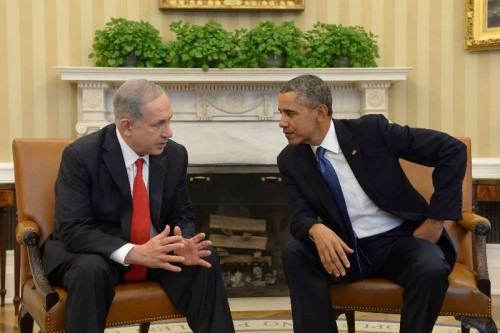
US President Barack Obama has reassured Israeli Prime Minister Benjamin Netanyahu of Washington’s commitment to prevent Iran from obtaining a nuclear bomb, a White House statement said.
Obama made the pledge hours after US Secretary of State John Kerry, presently visiting Pakistan, expressed a wish to accelerate nuclear talks with Iran, Xinhua reported.
In a White House statement, Obama reiterated that nuclear talks with Iran focus on reaching a deal across the board that prevents Iran from acquiring a nuclear bomb and obliges Iran to unequivocally guarantee that international community about the peaceful nature of its nuclear programme.
“The president underscored the US’ enduring commitment to the security of Israel and the importance of continuing close cooperation with Israel on this issue,” the statement added.
During his recent visit to India, Kerry told reporters that his meeting with Iranian Foreign Minister Mohammad Javad Zarif in Geneva will review the past talks.
The planned bilateral engagement would be followed by talks Sunday between Iran and the six world powers, known as P5+1 group — comprising Russia, China, Britain, France, and the US plus Germany.
Negotiators have so far failed to reach a comprehensive deal, under which Tehran would suspend its nuclear programme while the West would relax or lift economic sanctions.
Israel has long been sceptical about the negotiations, arguing that Iran is adamant and is merely exploiting the temporary mitigation of US sanctions.